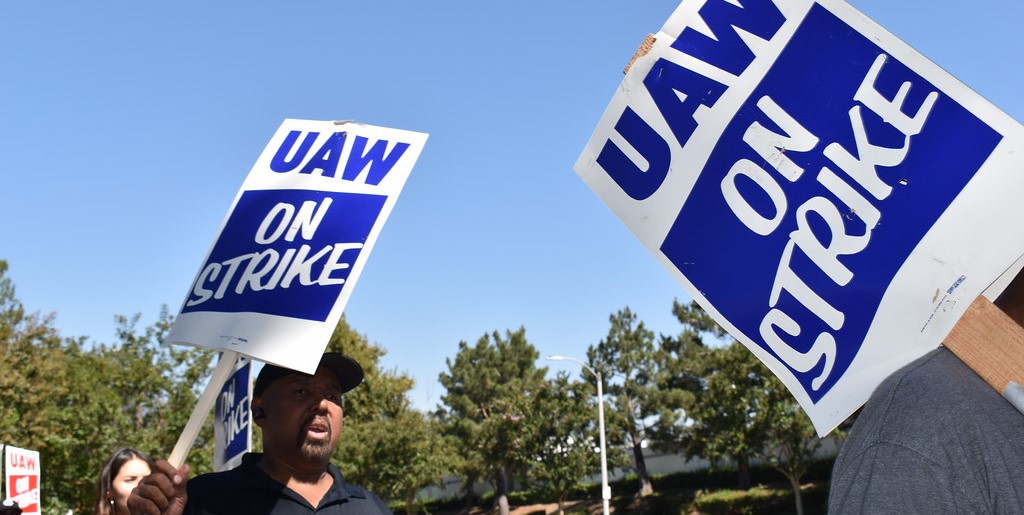Over a month after the start of the historic United Auto Workers (UAW) strike against Detroit's big three auto companies (Ford Motor Company, General Motors Company and Stellantis), autoworkers have won some major breakthroughs.
On September 22, in response to the retaliatory lay-offs by Stellantis and GM, the UAW expanded its strikes across all 38 parts-distribution plants owned by the two companies in 20 states. The following week saw another expansion, with workers in GM's plant in Lansing, Michigan, and Ford's production facility in Chicago joining the stand-up strike.
October 6 marked the first week of the UAW halting the expansion of the strike, citing breakthroughs with automakers. As of October 12, Ford's largest money-maker, the truck and SUV plant in Louisville, Kentucky saw 8700 workers go on strike. Currently, 33,700 workers are on strike against the Big Three at 44 facilities.
The strike expansion that was planned for the first week of October was averted when GM agreed to bring workers at their electric-vehicle battery manufacturing plants under the national deal with the UAW. The announcement came after the UAW threatened to call workers at GM's production plant in Arlington, Texas into the strike. If that were to happen, GM would see SUV's from it's Cadillac, GM, and Chevrolet lines disrupted- a significant hit to the monopoly's profits.
On Friday, UAW president Shawn Fain stated the inclusion of workers at electric-vehicle battery plants in the national agreement was "something that was unthinkable until today. They agreed to put the future of this industry under our national agreement. This victory is a direct result of the power of our membership." Further expansions at Stellantis and Ford plants were also averted, as the negotiations have made significant progress, including increased wages across the board, shortened time required to see pay raises, and increased number of holidays.

Despite the victory in bringing electric vehicle battery manufacturing under the UAW's fold, further action was taken against Ford, who has been stiffing the union on wages and pension plans. To ramp up the pressure against the automakers, the UAW has ceased announcing which plants will be going on strike on Fridays, opting to keep automakers guessing instead. This tactic is intended to prevent stalling and last-minute offers by company bargaining teams.
The union states that "We're still fighting hard to win retirement security for both our pre-2007 and post-2007 hires". Further demands that have yet to be met by the big three include the 32 hour work week, and there is still discussion on solutions for job security, profit-sharing, and cost of living wage adjustments.


